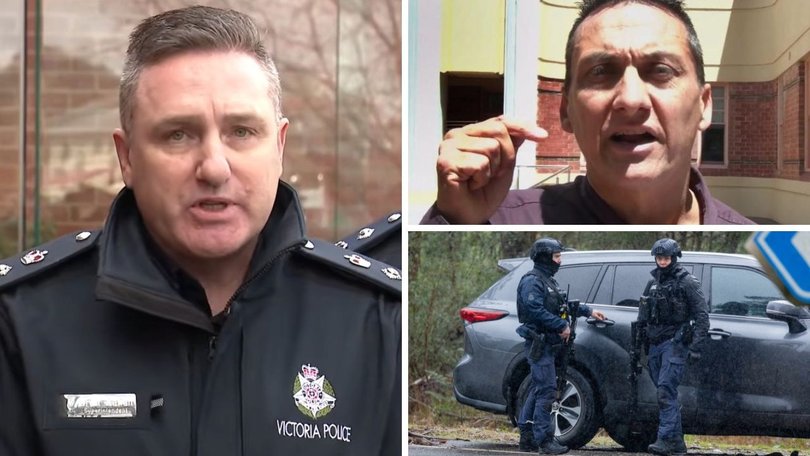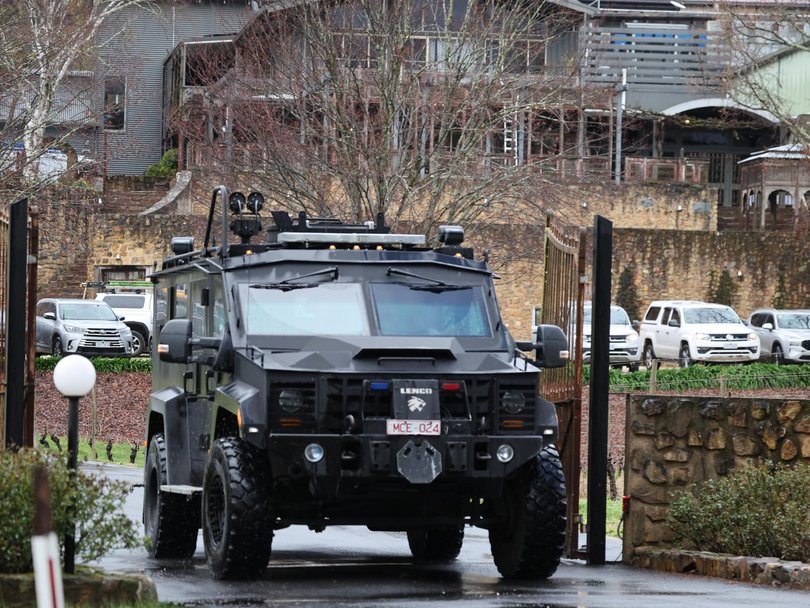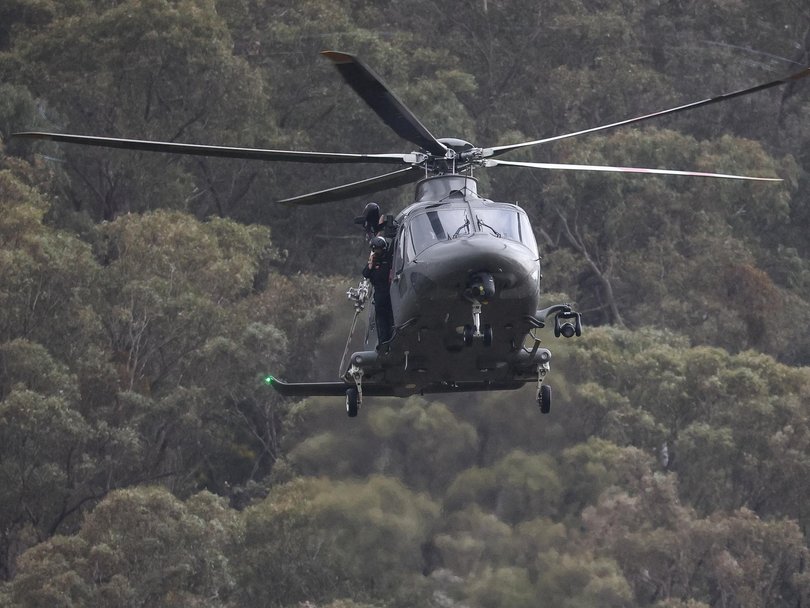Dezi Freeman: The sovereign citizen movement faces an aggressive police response
AARON PATRICK: Experts say shootings by self-declared ‘sovereign citizens’ will lead police to use military tactics more frequently, which the extremists will see as an escalation.

When a police officer hears the words “I do not consent” they might reach for their gun.
The phrase is used by members of the the sovereign citizen movement, who believe they can choose to exclude themselves from the jurisdiction of state or federal laws.
It is not known if the man accused of shooting three Victorian police officers this week, Dezi Freeman, uttered the words, but the 56-year-old’s long and confrontational history with the justice system probably makes him the leading Australian member of a movement growing in numbers, confidence and aggression.
Sign up to The Nightly's newsletters.
Get the first look at the digital newspaper, curated daily stories and breaking headlines delivered to your inbox.
By continuing you agree to our Terms and Privacy Policy.Now on the run in Victoria’s rugged Alpine region, Mr Freeman was visited by 10 police looking for evidence he, or someone he lived with, may have committed a sexual offence against a child under 16, according to The Age, which cited three anonymous sources.
Mr Freeman’s pattern of behaviour and public comments
Sovereign citizens oppose government control, do not accept authorities’ legitimacy and are hostile to big business, especially technology conglomerates, who they allege work with the state to monitor and suppress individuals.
“These groups emphasise their view that public servants ‘work for them’ and public buildings ‘belong to the people’,“ according to a Federal Police presentation released under the freedom of information law. “
During anti-lockdown protests in Melbourne, some SovCit groups were chanting ‘you serve us’ at police officers, and many protesters in Canberra suggested they had a ‘right’ to occupy Parliament house.”

‘New Gestapo’
Hostility towards law enforcement is central to their philosophy. Mr Freeman wrote on Instagram in 2023 “the only good cop is a dead cop,” the ABC reported Thursday. The police are “the new Gestapo” who should be “preferably incinerated” and have “declared war on Aussies”, he wrote, using all capitals.
The shooting on Tuesday in Porepunkah about 300km from Melbourne, which cost two officers their lives, is a sign the movement is becoming more violent, former Australian Border Force head Roman Quaedvlieg said, and police tactics may have to adapt.
Other recent fatal police shootings include Constable Keith Smith in northern Tasmania in June and constables Matthew Arnold and Rachel McCrow in the Queensland town of Wieambilla in 2022.
Feeling threatened, police forces may use more military-type units, often called special operations groups, to conduct what in the past have been routine work carried out by officers armed with little more than pistols.
“Globally and in Australia there is a higher propensity to use firearms to resist law enforcement officers,” Mr Quaedvlieg told The Nightly. “This escalates the risk to police officers’ safety. Potentially we are at a point where an increased use of SOG resources is necessary.”
If more police carrying machine guns and wearing helmets and camouflaged clothing search homes and look for people on the run for minor offences, the sovereign citizenship movement’s powerful sense of grievance may intensify.
“A more militarised police presence feeds into the narrative among the sovereign citizenship movement that we are living under an oppressive state,” said Callum Jones, a Deakin University specialist in right-wing extremist groups.
“It is not implausible they would see that as an escalation.”

Hollywood treatment
The movement, which originated in the US in the 1970s, has flourished as its fringe opinions have found receptive audiences through social media. Hollywood may be helping. Last month a film called Sovereign came out based on the 2010 killing of two police officers at a routine traffic stop in Arkansas by 45-year-old Jerry Kane and his 16-year-old son, Joseph. The officers were shot 22 times.
Celebrated by critics, the film stars Dennis Quaid as a police detective and Nick Offerman as a father who teaches his son the police and government enforce illegitimate laws. “This is an illegal stop,” Offerman’s character says in one scene. “What law did I break?”
Mr Freeman lived with his family in a caravan on a remote property at the end of a dirt road marked by a sign that says: “Private Property. No Public Access.” He has a son approximately 18 years old, according to a media report.
In 2020 he became angry at a local magistrate considering an anti-harassment order filed against him. “Does this court obey the law?” Mr Freeman said, according to The Age.
“I’m very angry. I have no grace left for anyone involved. You must stand down. You are now in my custody. You are not free to leave.”
Telegram
Many far-right groups have been chased off regular social media sites under pressure from governments. Sovereign citizens in Australia have migrated to Telegram, an online-free-for-all run by Russians in Dubai.
Some people sympathetic to their views still use Instagram, X and other sites. This week an X account known as Australians vs. The Agenda, which has 42,000 followers, seemed to complain authorities were over-reacting to the shootings in Victoria.
“The Australian Government has been going absolutely nuts today, trying to frame everyone in the freedom movement as an extremist or terrorist,” the account posted Wednesday.
On Thursday, it posted a broadcast interview with a Nationals senator, Bridget McKenzie, who said her fellow MPs were receiving more emails from people “claiming their own sovereignty”.
“This seems to be a growing trend,” she said on Sky News. “The AFP needs to be examining the growing trend so we can do more about it.”
The post drew about 40 comments in one hour, most them critical of Senator McKenzie and the Government.
“Oh good a new term to identify patriotic members of Australian society,” wrote someone calling themself Caucus Cannon. “We should all change our profile to sovereign citizen :)“

